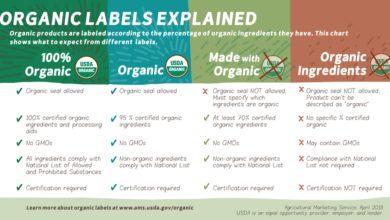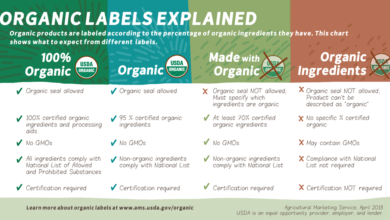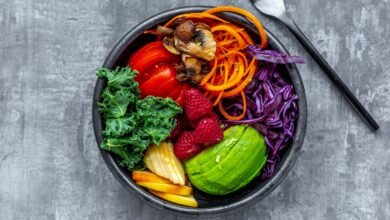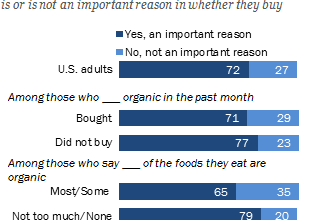What If You Eat Healthy But Don’t Exercise: Surprising Facts
Eating healthy is vital for good health. But what if you skip exercise?
You might wonder how this choice affects your body and overall well-being. Many people believe that a balanced diet is enough. They think exercise is optional. But is this true? Understanding the relationship between diet and physical activity is crucial.
While healthy eating provides essential nutrients, exercise has its benefits. It boosts metabolism, improves mood, and strengthens the heart. Combining both can lead to the best results. In this blog post, we will explore what happens when you eat well but don’t work out. We will look at the impacts on your body, mind, and long-term health. Stay tuned to learn more about this important topic.

Credit: www.youtube.com
Diet Vs. Exercise: The Balance
Finding the right balance between diet and workout is crucial for overall health. Some people focus solely on eating healthy, thinking it’s enough. Others might prioritize workouts, ignoring their diet. But what happens if you eat healthy but don’t exercise? Let’s explore this balance and see why both are important.
Importance Of Nutrition
Nutrition plays a vital role in maintaining a healthy body. A balanced diet provides essential nutrients that help in various body functions. These include growth, repair, and maintaining energy levels. Eating healthy can also prevent chronic diseases like diabetes and heart disease.
A healthy diet should include fruits, vegetables, whole grains, and lean proteins. These foods supply vitamins, minerals, and fiber. Avoiding processed foods and sugary drinks is also important. They can lead to weight gain and other health issues.
Role Of Physical Activity
Exercise is essential for a healthy lifestyle. Physical activity helps burn calories and reduces the risk of obesity. It also strengthens muscles and bones. A regular workout can improve cardiovascular health and boost the immune system.
Exercise releases endorphins, which reduce stress and improve mood. It also enhances brain function and memory. A lack of physical activity can lead to muscle loss and decreased flexibility.
To achieve the best results, combine a healthy diet with a regular workout. Both are essential for maintaining overall health and well-being.
Nutritional Benefits
Eating healthy has many benefits for your body. Even without exercise, a good diet can improve your overall health. This section explores the nutritional benefits of eating healthy.
Improved Digestion
A healthy diet often includes fiber-rich foods. These foods help your digestive system work better. Fiber can be found in fruits, vegetables, and whole grains.
Eating these foods regularly can prevent constipation. They also help your body absorb nutrients more efficiently.
Here is a simple list of fiber-rich foods:
- Apples
- Broccoli
- Oats
- Beans
These foods not only aid digestion but also keep your stomach feeling full for longer.
Enhanced Immunity
Eating healthy can boost your immune system. Foods rich in vitamins and minerals are key. Vitamin C, for example, helps your body fight off infections. You can find it in oranges, strawberries, and bell peppers.
Minerals like zinc also play a role in enhancing immunity. Foods like nuts, seeds, and dairy products are good sources of zinc.
Here is a table of foods that boost immunity:
| Food | Benefit |
|---|---|
| Oranges | High in Vitamin C |
| Spinach | Rich in Iron and Vitamins |
| Almonds | Contains Vitamin E and Zinc |
| Garlic | Has antibacterial properties |
Including these foods in your diet can help you stay healthy and less prone to illnesses.
Health Risks Of Inactivity
Eating healthy is essential, but without a workout, you still face health risks. Physical inactivity can lead to several severe health issues. Let’s explore some of these risks.
Cardiovascular Issues
Lack of exercise can increase the risk of heart disease. When you don’t move enough, your heart and blood vessels don’t get the workout they need.
This can lead to high blood pressure and high cholesterol levels. Sedentary lifestyles also contribute to obesity, which is another risk factor for heart disease.
Muscle Atrophy
Muscle atrophy refers to the weakening and shrinking of muscles. Without regular exercise, your muscles don’t get the stimulation they need to stay strong.
This can lead to a loss of muscle mass and strength over time. Weak muscles can affect your balance and increase the risk of falls and injuries.
| Risk | Impact |
|---|---|
| Cardiovascular Issues | High blood pressure, high cholesterol, heart disease |
| Muscle Atrophy | Weak muscles, loss of strength, increased injury risk |
- Regular workout supports heart health.
- Exercise keeps muscles strong and functional.
Mental Health Impacts
Eating healthy is important for your physical health. But what about your mental health? If you eat well but don’t work out, it can affect your mind. Let’s explore some of these impacts.
Stress And Anxiety
Stress and anxiety can be high if you lack physical activity. Exercise helps release endorphins, which are chemicals that make you feel happy. Without exercise, your body might not produce enough of these chemicals. This can lead to increased stress and anxiety levels.
Eating healthy can help, but it might not be enough. You might still feel overwhelmed or anxious. This is because your body needs both good food and regular exercise to manage stress well.
Cognitive Function
Cognitive function refers to how well your brain works. Eating healthy foods can improve brain health. But without exercise, your cognitive function might not be at its best. Exercise increases blood flow to the brain. This helps to improve memory and thinking skills.
Without regular physical activity, you might find it harder to focus or remember things. Your brain needs both good nutrition and physical activity to work well.
To summarize, eating healthy is great for your body and mind. But don’t forget to add a workout to your routine. Your mental health depends on it!
Weight Management Challenges
Eating healthy is crucial for overall well-being. But without a workout, weight management challenges arise. Balanced nutrition and physical activity together ensure optimal health. Let’s explore why.
Metabolism And Calories
Metabolism plays a key role in managing weight. It refers to the process of converting food into energy. Without exercise, metabolism slows down. This makes it harder to burn calories efficiently.
Calories consumed through healthy eating might not get burnt. This results in excess calories stored as fat. Regular workout increases metabolic rate, which helps in burning calories faster.
Here’s a simple table to understand calorie burn with and without exercise:
| Activity Level | Calories Burned Per Day |
|---|---|
| Sedentary (No Exercise) | 1,800 |
| Moderately Active (Exercise 3-4 times a week) | 2,200 |
| Active (Daily Exercise) | 2,500 |
Risk Of Obesity
Eating healthy but not exercising increases the risk of obesity. Even nutritious food can contribute to weight gain if not balanced with physical activity.
Obesity leads to several health issues:
- Diabetes
- Heart disease
- Joint problems
Regular exercise helps maintain a healthy weight. It also reduces the risk of chronic diseases.
Consider these tips to integrate workouts into your routine:
- Start with short walks.
- Incorporate simple home workouts.
- Join a fitness class you enjoy.
Remember, combining healthy eating with exercise is the best way to manage weight effectively.

Credit: www.youtube.com
Long-term Consequences
Eating healthy is crucial for maintaining good health. But what happens if you eat healthy but don’t exercise? This combination can lead to some unexpected long-term consequences. Below, we explore the potential impacts on your health and lifespan.
Chronic Diseases
A healthy diet can lower the risk of chronic diseases. But without a workout, the benefits are limited. Physical activity helps control weight, reduce blood pressure, and improve heart health. Lack of exercise can lead to:
- Heart disease
- Type 2 diabetes
- High blood pressure
- Stroke
These conditions can develop slowly. You might feel fine now, but the long-term risks are significant.
Longevity
Regular exercise is linked to a longer life. It boosts your immune system and keeps your body strong. A healthy diet alone can’t provide these benefits. Studies show that people who workout live longer. They also have a better quality of life. Workout helps maintain muscle mass and bone density. This is crucial as you age.
Combining a healthy diet with regular exercise can add years to your life. It can also reduce the time you spend dealing with illness.
| Factor | Impact on Longevity |
|---|---|
| Healthy Diet | Moderate impact |
| Regular Exercise | High impact |
A balanced approach is best. Eat well and stay active to enjoy a longer, healthier life.
Balancing Lifestyle Choices
Balancing lifestyle choices involves more than just eating healthy. It’s a blend of diet and physical activity. Many people focus on eating right but skip exercise. This approach can have mixed results. While a healthy diet is crucial, exercise plays a key role in overall wellness.
Incorporating Exercise
Exercise boosts your metabolism. It helps burn calories more efficiently. Regular activity strengthens your heart and muscles. It improves your mood and energy levels. Walking, jogging, or swimming can make a big difference. Even 30 minutes a day can yield significant benefits.
Maintaining Healthy Diet
A healthy diet provides essential nutrients. It supports bodily functions and energy levels. Eating a variety of foods ensures you get vitamins and minerals. Choose whole grains, lean proteins, and plenty of fruits and vegetables. Avoid processed foods and sugary drinks.

Credit: www.linkedin.com
Expert Opinions
When maintaining a healthy lifestyle, both nutrition and workout play significant roles. But what happens if you eat healthy but don’t exercise? Here, we provide expert opinions to shed light on this topic.
Nutritionists’ Views
Nutritionists emphasize the importance of a balanced diet. Eating healthy foods provides essential nutrients for your body. These nutrients help maintain various bodily functions.
Some key points nutritionists highlight include:
- Weight Management: You might manage your weight if you eat healthy but don’t exercise. However, the risk of muscle loss increases.
- Nutrient Absorption: A diet rich in fruits, vegetables, and whole grains ensures proper nutrient absorption.
- Immune System: Healthy eating boosts your immune system, reducing the risk of illnesses.
Nutritionists caution that relying solely on diet may not provide all the health benefits of combining it with workout.
Fitness Trainers’ Advice
Fitness trainers stress the importance of incorporating physical activity into your routine. Exercise enhances overall health beyond just maintaining a healthy diet.
Some benefits of exercise include:
- Cardiovascular Health: Regular exercise strengthens your heart and improves blood circulation.
- Muscle Strength: Exercise helps build and maintain muscle mass, which is crucial for long-term health.
- Mental Health: Physical activity releases endorphins, which improve mood and reduce stress.
Trainers suggest combining a healthy diet with regular exercise for optimal health benefits. This combination supports both physical and mental well-being.
Frequently Asked Questions
Can You Stay Healthy Without Exercising?
Eating healthy can improve your health, but exercise is also essential. Regular physical activity helps with weight management, heart health, and overall well-being.
What Happens If You Only Eat Healthy?
If you only eat healthy but skip exercise, you may miss out on benefits like improved fitness, stronger muscles, and better mental health.
Is Diet More Important Than Exercise?
Both diet and workout are important. A balanced diet provides nutrients, while exercise helps burn calories, build muscle, and maintain overall health.
Can Diet Alone Help With Weight Loss?
Diet alone can help with weight loss, but combining it with exercise leads to better and more sustainable results.
Conclusion
Eating healthy is important for your body. But exercise matters too. Both work together for the best results. Good food fuels your body. Exercise keeps it strong and active. Skipping one can limit your health benefits. Balance is key. Simple changes can make a big difference.
Start small, move more, and stay healthy. Your body will thank you.







